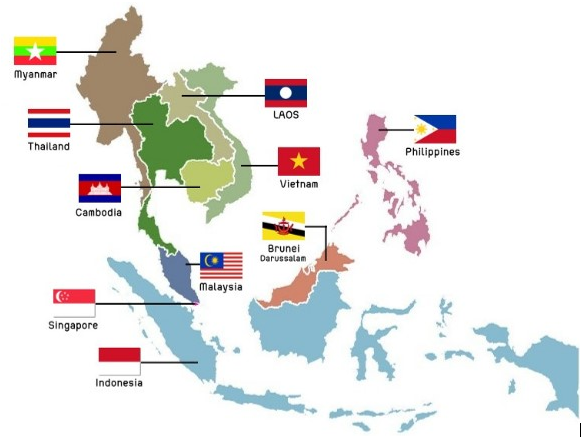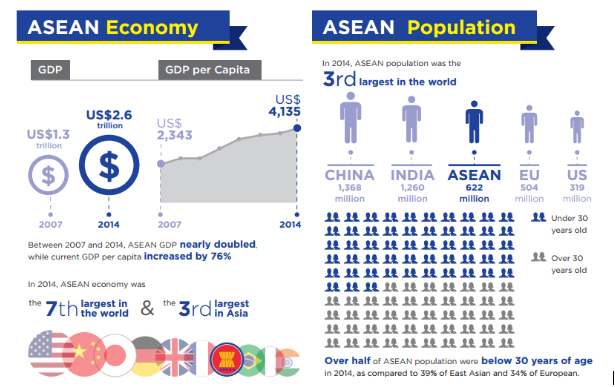

Context
The online ASEAN Special Summit and ASEAN+3 Special Summit on Covid-19 response took place in Hanoi, Vietnam, chaired by Prime Minister Nguyen Xuan Phuc, chairman of ASEAN and of ASEAN+3.
About
- The Association of Southeast Asian Nations (more commonly known as ASEAN) is an intergovernmental organization aimed primarily at promoting economic growth and regional stability among its members.
- There are currently 10 member states: Indonesia, Malaysia, Philippines, Singapore, Thailand, Brunei, Laos, Myanmar, Cambodia and Vietnam.
- Chairmanship of ASEAN rotates annually, based on the alphabetical order of the English names of Member States.
- ASEAN aims to promote collaboration and cooperation among member states, as well as to advance the interests of the region as a whole, including economic and trade growth.
- It has negotiated a free trade agreement among member states and with other countries such as China, as well as eased travel in the region for citizens of member countries.
Key-highlights of the meeting:
- Leaders of the 10-nation bloc and their partners from three ASEAN partners, namely China, the Republic of Korea and Japan, discussed measures and initiatives to strengthen co-operation in the fight against the Covid-19 pandemic to ensure dynamic and sustainable development in the region in the long run.
- They are expected to adopt a joint statement of the ASEAN Summit and another of the ASEAN+3 Special Summit on COVID-19 response, in which they will affirm their commitment to preventing and eliminating the risk of the pandemic which is threatening people's lives, and in stabilising the socio-economic situation in each member state.
- Addressing the opening ceremony, Vietnam’s PM stressed the significance of the meeting with COVID-19 spreading across the region and the world.
- All ASEAN member countries have strived to fight the pandemic which has harmed the lives of all citizens and socio-economic development, particularly the services sector which accounted for 30 per cent of the total GDP of ASEAN, threatening sustainability and social security.
- However, he noted that during this difficult time, the solidarity of the ASEAN Community has brightened, shouldering together to overcome difficulties.
- This was demonstrated by the ASEAN Chairman's Statement on ASEAN Collective Response to the Outbreak of Coronavirus Disease 2019.
- Member countries have enhanced co-operation in health care, national defence, economy and tourism; and supported each other.
- ASEAN’s efforts have brought encouraging results, putting the pandemic under control.
- The number of COVID-19 cases in ASEAN stands at about 15,000 among more than 650 million citizens, lower than the global rate.
The origin:
- ASEAN was founded half a century ago in 1967 by the five Southeast Asian nations of Indonesia, Malaysia, Philippines, Singapore and Thailand.
- This was during the polarized atmosphere of the Cold War, and the alliance aimed to promote stability in the region.
- Over time, the group expanded to include its current 10 members.
- Regional cooperation was further extended with the creation of the ASEAN Plus Three forum in 1997, which included China, South Korea and Japan.
- And then the East Asia Summit, which began taking place in 2005 and has expanded to include India, Australia, New Zealand, Russia and the United States.
|
ASEAN Economic Community (AEC):
|
Economic importance of ASEAN:
- If ASEAN were a country, it would be the seventh-largest economy in the world, with a combined GDP of $2.6 trillion in 2014.
- It is project that by 2050, ASEAN will rank as the fourth-largest economy of the world.
- Home to more than 622 million people, the region has a larger population than the European Union or North America.
- It also has the third-largest labour force in the world, behind China and India.




